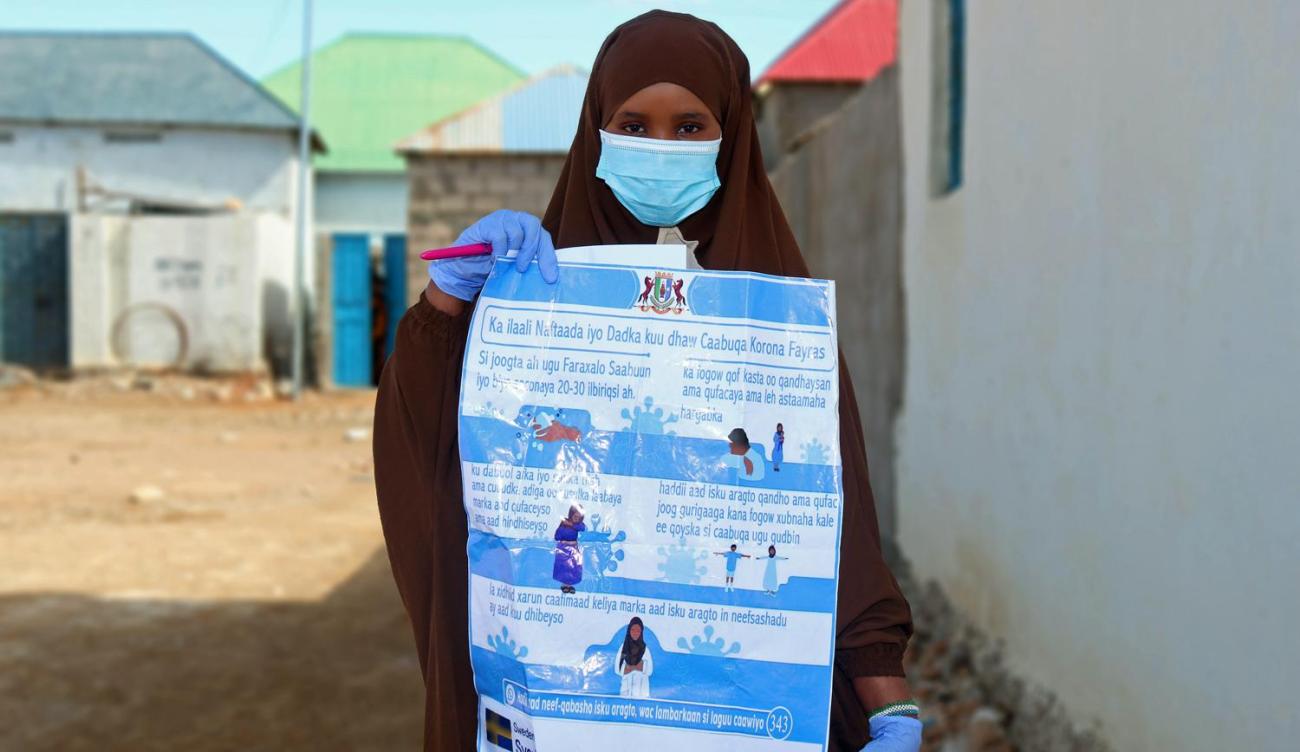In the frontlines of combating COVID-19

A day in the life of a community social mobilizer
“We must work together to combat this disease,” says 22-year-old Zahra Mohamoud Jama, a community social mobilizer, going door to door and educating families about the preventive measures they can take to protect themselves and their loved ones from the COVID-19 virus.
She has been knocking on doors since 6:30 am in the morning and hopes to reach at least 20 families before she wraps up her day. She is not new to this type of work, but unlike the previous awareness and sensitization campaigns, this one has an element of danger.
“With the disease spreading, I have concerns for my own safety, Zahra explains. “But I know if I protect myself and follow the personal protection and safety guides, I will be safe,” she adds.
This means that before she left home, she washed her hands and put on gloves and a mask. Wearing the equipment will not only protect her but also the families she visits.

With her notebook and visual aid under her arm, Zahra walks around in the community, calls on families and strikes conversations. “Some people are well informed,” Zahra says.
“Others are aware of the disease and eager to learn what they can do to stay safe. They tend take on board quickly any advice I give.”
“It’s more challenging to talk to people who are in denial about the seriousness of the disease. Some brag and say they are not afraid of the virus,” she notes. “I spend most of my time with these people and try to reason with them until they are convinced,” Zahra clarifies.

During the chats, she explains how the virus is transmitted, what people can do to protect themselves and what steps they need to take if someone in the family becomes ill. She talks about the importance of hand washing and keeping physical distance when leaving the house. She also informs families that they can use locally made and available reusable masks but don’t need to wear them unless they are taking care of someone who is infected. She listens and offers advice.
“Some people are very vulnerable, and if we don't go out to the communities and inform them, the situation might turn disastrous and people will die,” Zahra says seriously. “I am glad to be at service and help of my people in any way I can.
Link to original story.

